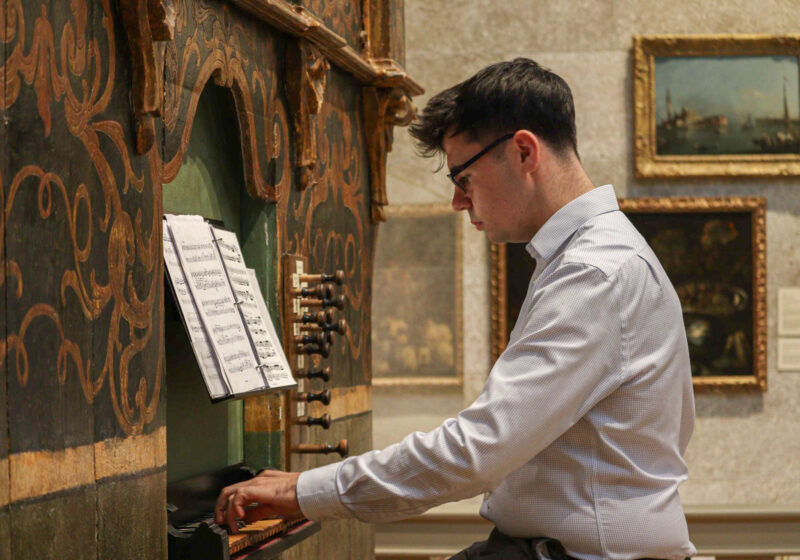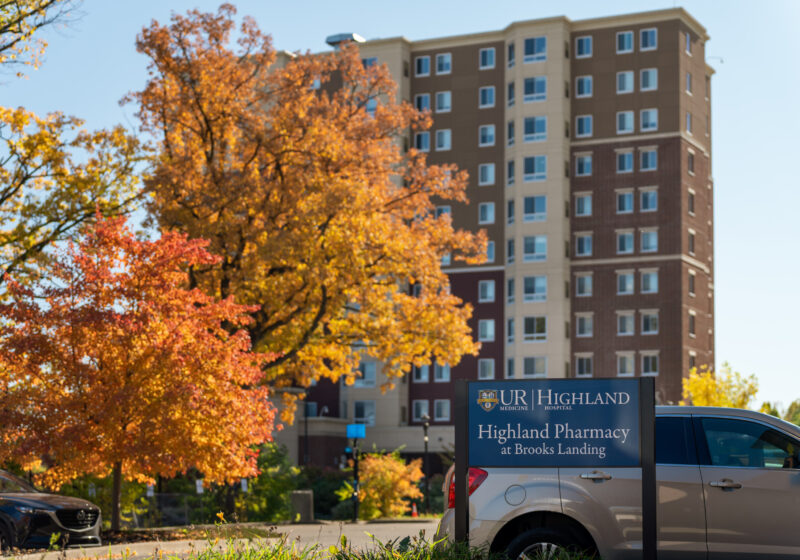Freshmen aren’t the only people living on the Residential Quad. About 100 support staff live there too ? the resident advisers and D’Lions who watched their halls bond, answered endless questions, wrote up noise reports each weekend and witnessed the college initiation of their approximately 30 residents.
Six months into the implementation of freshman housing, support staff have varying opinions. The new system, of course, has its ups and downs.
The freshmen have stronger hall unity, but suffer from not knowing upperclassmen. They engage in more social activities, but don’t know how to get involved on campus. Program attendance has gone up, but so have academic and disciplinary problems.
Almost everyone interviewed for this article feels freshman housing has met at least one of its objectives ? building a greater sense of class and hall unity.
“I’m actually in the minority ? I feel freshman housing has been a success in general,” said sophomore Richard Craney, an RA on the fourth floor of Crosby Hall. “They have a positive outlook on the school and there’s definitely class unity ? they spend so much time together. I’d say they’re pretty happy.”
Senior Michael Fletcher, an RA on the fourth floor of Lovejoy Hall, had a floor of freshmen and sophomores in Susan B. Anthony Halls last year. “There’s definitely more of a sense of community on my hall than I’ve seen in previous years,” Fletcher said.
Even the many who oppose freshman housing admit unity is strong.
Sophomore Julia Sando, a D’Lion on the fourth floor of Hoeing Hall, has seen her entire hall eating Chinese food and watching a movie together in the lounge.
“Class unity has definitely been increased,” said senior Nick Krebs, an RA on the second floor of Lovejoy Hall. “People don’t mind it, but there’s nothing to compare it to.”
But isolation from upper-classmen is the price freshmen pay for that unity ? and most support staffers think it’s not worth it.
Take Five Scholar Awista Ayub, a first-time RA on the first floor of Crosby, initially supported freshman housing but doesn’t think it has lived up to its expectations.
“In the beginning, it worked well to give them a sense of community on their hall, but as time went on, the lack of interaction with upperclassmen became a problem,” she said.
Ayub said some girls on her floor rushed sororities because they had no other opportunity to meet upperclassmen.
Sophomore Sheena Ahmad, a D’Lion on the third floor of Lovejoy, said, “The college should be more integrated. It’s not like high school where you divide yourself into different classes.”
“It’s good for them but not necessarily for the college as a whole. They’re mixing among themselves but not getting out to meet other people, and that’s what college is for,” Ahmad said. “I think they’re looking forward to next year, when they can live with other classes.”
Furthermore, the staff overwhelmingly feels that three upperclassmen per hall is not enough to meet the freshmen’s needs ? especially academically.
“A lot of them are engineering majors. I’ve never taken an engineering class and I don’t know any of the professors,” said junior Suzanne Decker, an RA on the second floor of Crosby.
“If there’s a premed person, I can’t answer their questions. I can refer them to other people, but it would be better if I could refer them to someone on the hall,” agreed junior Jason Sanderson, an RA on the first floor of Lovejoy.
“I wish there were other upperclassmen around, especially in the beginning. “They asked questions about some things I’d never even heard of,” said sophomore Elizabeth Lee, a D’Lion on the third floor of Hoeing.
The dearth of upperclassmen may even be affecting the freshmen’s academic performance.
“I think they’re doing worse than the average,” Krebs said. “It’s easier to slack off when there’s not as many examples. We as upperclassmen have fun, but we also work hard, and they don’t really get the chance to see that. They tend to play more video games and do more social things instead of doing their work when they have to. Some of them weren’t too happy with their first-semester grades.”
Junior Matt Fearnside, an RA on the first floor of Hoeing, voiced similar sentiments.
“I don’t think they’re doing as well,” Fearnside said. “Having no other upperclassmen besides me and two D’Lions makes it hard for freshmen to see an upperclass student who has a busy schedule, goes to classes on a regular basis and sleeps at normal hours.”
Most staffers say they haven’t had major discipline problems, but almost all complain about the noise.
“On the whole, I’ve dealt with a lot more discipline situations than I’d have liked to ? especially noise,” Fearnside said.
But Craney says he has only written three incident reports all year ? less than he expected for an all-male hall.
Many of the staff say their residents aren’t sure how to get involved with campus activities.
“In the future, I think you’re going to see a lack of leadership from this class in campus activities,” Ayub said. “When I was a freshman, I joined clubs because upperclassmen on my floor were in them.”
Sanderson said, “They feel totally disconnected with the rest of the school. They have no clue as to how to begin to get involved.”
“The activity level is down,” Krebs said. “They tend to stay more on the hall rather than going out. I think it’s going to be damaging as far as getting freshmen involved on campus.”
This lack of involvement may keep freshmen from diversifying ? and ultimately lead to de facto class-based housing in the future. Sanderson, Krebs and Sando all say their residents don’t know much about special interest housing.
“I was telling some of them that they should apply to be D’Lions, and they don’t want to be D’Lions because they don’t want to live apart from each other,” Ahmad said. “They just want to stay together. I don’t really see the people on this floor branching out because they’re so close.”
There are mixed reactions about the proposal to move freshman housing to Sue B., Gilbert and Tiernan Halls. Supporters of the idea feel it would integrate the class more and be more fair to upperclassmen.
“A mixed atmosphere on the quad would help to foster a better system in terms of discipline and community,” Fearnside said.
“As a building, it is just better suited to freshman housing, and opening up the quad to upperclassmen would open so many more singles,” Decker said.
But the staunchest opponents of freshman housing feel that only a complete upheaval of the system would accomplish anything.
“Moving wouldn’t help,” Krebs said. “It would be a mini quad-type situation. There would still be no upperclassmen around. The social environment would stay the same.”
“I think it just ends up moving the problem to another area. It’s not really helping to solve the lack of upperclass interaction with freshmen,” Ayub said.
It will take more than six months to determine whether freshman housing can deliver what its proponents claim. Ultimately, support staff can only guess at what is best for their residents.
“I think they would prefer mixed living, whether they know it or not,” Sanderson said.
Fletcher has a more pragmatic view.
“I came from the old way ? it’s two different worlds,” he said. “They love it. If they like it and they’re doing all right, who’s to say that they should change?”
Le can be reached at cle@campustimes.org.




